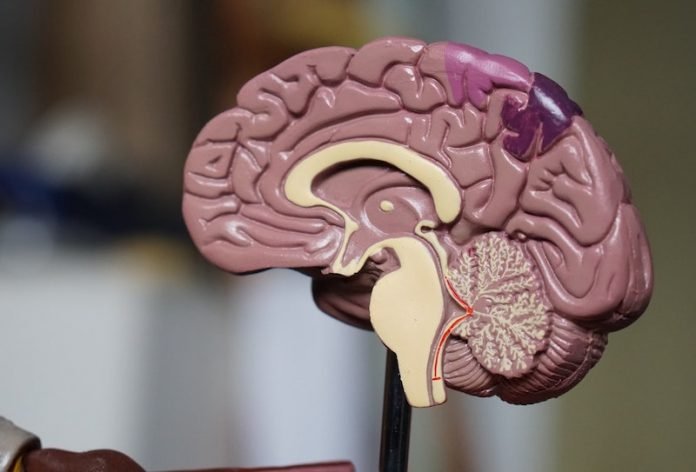
Prevailing theories posit plaques in the brain cause Alzheimer’s disease.
In a new study from UC Riverside, researchers found cells’ slowing ability to clean themselves as the likely cause of unhealthy brain buildup.
Along with signs of dementia, doctors make a definitive Alzheimer’s diagnosis if they find a combination of two things in the brain: amyloid plaques and neurofibrillary tangles.
The plaques are a buildup of amyloid peptides, and the tangles are mostly made of a protein called tau.
In the study, the team examined understudied aspects of tau protein. They wanted to understand whether a close examination of tau could reveal more about the mechanism behind the plaques and tangles.
A key but the difficult-to-detect difference in the form of tau allowed the scientists to distinguish between people who expressed no outward signs of dementia from those who did.
The team focused on the different forms that a single molecule can take, called isomers.
They scanned all the proteins in donated brain samples. Those with brain buildup but no dementia had normal tau while a different-handed form of tau was found in those who developed plaques or tangles as well as dementia.
Most proteins in the body have a half-life of less than 48 hours. However, if the protein hangs out too long, certain amino acids can convert into the other-handed isomer.
In general, the process of clearing spent or defective proteins from cells, known as autophagy, slows down in people over the age of 65.
Fortunately, drugs are already being tested to improve autophagy. Some candidates include existing drugs approved for cardiovascular disease and other conditions, which may help speed up the approval process.
Autophagy can be induced by fasting. When cells run short on proteins from an individual’s diet, they fill the void by recycling proteins already present in cells. Exercise also increases autophagy.
The team says these measures, as well as drug therapies, may ultimately help prevent the disease.
If you care about Alzheimer’s disease, please read studies about Alzheimer’s: carriers of risk gene show brain changes in their 20s – here’s why we shouldn’t worry and findings of take steps to slow Alzheimer’s disease.
For more information about Alzheimer’s disease, please see recent studies about blood test could detect Alzheimer’s disease early and accurately and results showing that liver problems linked to Alzheimer’s disease.
The study is published in the Journal of Proteome Research. One author of the study is Professor Ryan Julian.
Copyright © 2021 Knowridge Science Report. All rights reserved.



